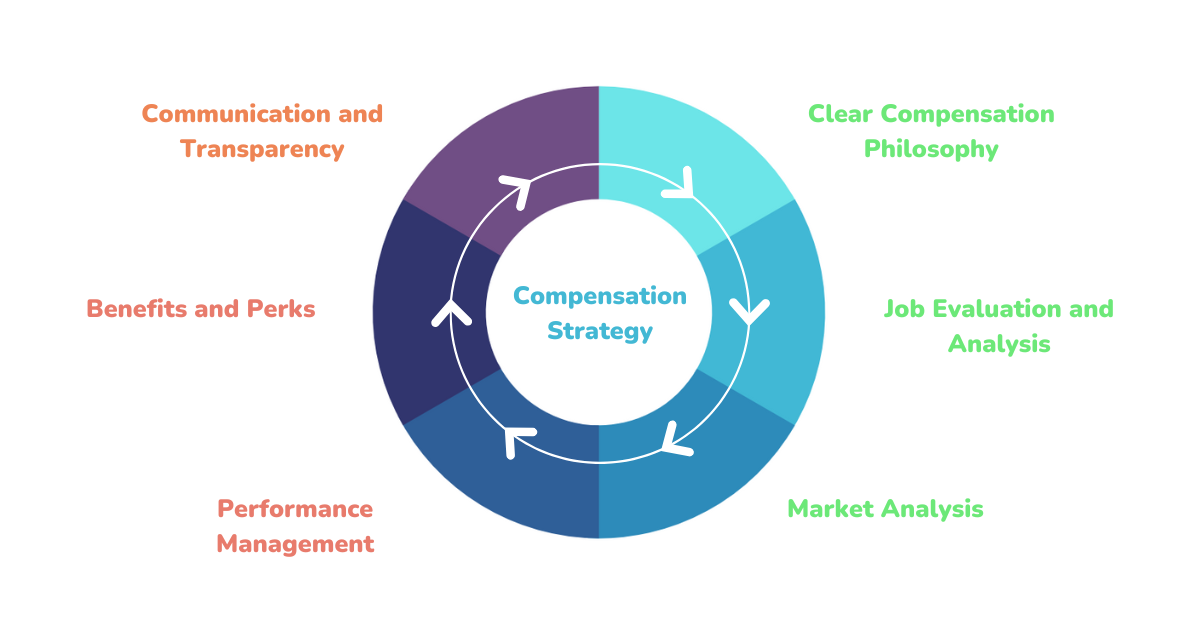6 Important Components of a Compensation Strategy

It is essential for organizations to have an effective compensation strategy in place. An effective compensation strategy should contain 6 key elements, by incorporating these elements, organizations can ensure that their compensation strategy is aligned with their goals, values, and overall business objectives, and is designed to attract, retain, and motivate top talent. These 6 key elements are:
-
Clear Compensation Philosophy
A compensation philosophy defines the organization's beliefs and principles about how to compensate employees. It should be aligned with the organization's overall goals and values, and communicated clearly to employees.
-
Job Evaluation and Analysis
A complete job evaluation and analysis process should be used to assess the value of each job inside the firm as part of an effective compensation strategy. Analyzing work responsibilities, obligations, necessary abilities, and experience levels might be a part of this.
-
Market Analysis
To ascertain the pay scales provided by rivals in the market, a company should do a market analysis. This might assist the company in establishing competitive pay scales that will draw in and keep top people.
-
Performance Management
An effective compensation strategy should link pay to performance, with clear performance metrics and goals. This can help to motivate employees and reward high performers.
-
Benefits and Perks
A complete benefits package that includes health insurance, retirement benefits, paid time off, and other advantages that can help to recruit and retain employees should be part of an organization's compensation strategy.
-
Communication and Transparency
It is crucial for an organization to be open and transparent with its employees about its compensation strategy. This can promote trust and guarantee that workers are aware of how their pay is calculated.
Any corporation that wants to recruit and keep top talent, inspire employees, and boost overall business performance must have a solid compensation strategy. Fairness, openness, and alignment with the overall aims and values of the organization are all qualities of an effective approach. Organizations can make sure that their compensation strategy is competitive and effective in achieving their business goals by incorporating key components like a clear compensation philosophy, job evaluation and analysis, market analysis, performance management, benefits and perks, and communication and transparency. Ultimately, the level of employee happiness, employee engagement, and business success can all be significantly influenced by a thorough and effectively stated compensation strategy.
Why OrangeHRM?
A modern-day HRIS can help organizations to make informed decisions when devising their compensation strategies. With OrangeHRM, the tools to devise an effective compensation strategy are at the user's fingertips. OrangeHRM can help automate the compensation process to run smoothly and effectively once the organization determines what the compensation strategy is going to look like. With advanced features such as performance management available to determine an organization’s top performers, retaining them will be easy. Find out about the robust capabilities of OrangeHRM by booking your FREE demo today!
